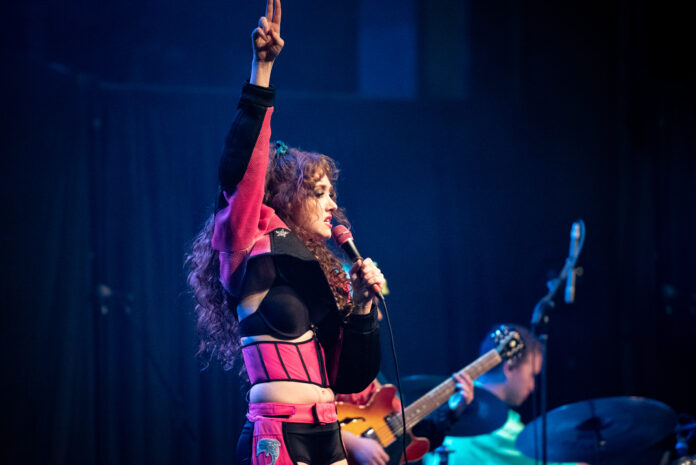Queer listeners and Gender, Sexuality and Women’s Studies lecturer discuss the effects of queer music and its rise in the industry
By GRACIELA TIU — features@theaggie.org
Queer music artists have been making music for decades, but in recent years, they gained more attention than they have previously. This could be occurring for a multitude of reasons, but nonetheless, this shift has brought about a special impact on LGBTQIA+ listeners. Dr. Sarah Thompson, a lecturer of Gender, Sexuality and Women’s Studies at UC Davis, describes the change they feel in the industry.
“It is my perception that there has indeed been a shift in recent years, and it does feel like we are seeing more openly queer artists — in particular, more openly queer artists who are fairly popular and well-known,” Thompson wrote in an email to The California Aggie. “Queer people being in the music industry is nothing new, of course, but many artists were only publicly out (or outed) after they had achieved high levels of fame and success or even after death.”
Queer music artists have existed for years, so what exactly is different right now? Dr. Thompson describes how there is a specific and multifaceted change that is occurring that is different from past cultural shifts.
“In recent years, it seems like we have more examples of artists who are openly queer, making music from a queer perspective and achieving mainstream success (MUNA, Kehlani, Frank Ocean, etc.),” Thompson said. “Chappell Roan is perhaps the biggest example of this right now — she’s absolutely blowing up, and her music is very explicitly queer.”
Having more popular and accessible queer music artists brings more listeners to their music, which can actually have a beneficial effect on many LGBTQIA+ listeners.
“There’s certainly a lot of anecdotal evidence that for queer people, especially queer people who are young or just coming out, art that reflects their feelings and experiences can be deeply meaningful,” Thompson said. “Art helps us understand ourselves, and music in particular can feel very powerful.”
However, having more openly queer artists in the industry does not necessarily mean that they are represented or perceived as equal compared to straight artists.
“With the media, I think that by focusing on the fact that they’re queer, it honestly takes away from them as a whole,” Ava Burton, a second-year geology major, said. “I don’t think that’s fair; I think that there is definitely that subtle heteronormativity.”
Overall, this recent rise in queer artists’ visibility begs the question: what is different now compared to several years ago?
“I think that the media is very different than it was 20 years ago,” Burton said. “I also think that it has to do with where you are, it depends on your age and also the communities you are in.”
Music listeners, especially those who are a part of the LGBTQIA+ community, also notice a difference in sounds created by queer artists. Max Wozniak, a second-year mechanical and aerospace engineering major, said music is interpreted in a deeper way.
“I feel like they just have a groove, a sound that is a lot more expressive,” Wozniak said. “That goes back to the lyrics too. They actually describe things in a very different way. Because every song about love when you’re queer is also a song about a little bit of [personal] pain.”
Wozniak also recognizes the influence queer artists have had on the music industry and performance culture as a whole.
“They’re making everything more colorful; [a lot of] the color and music for the past, like 15 years have been introduced by queer people,” Wozniak said.
Having more queer representation in music culture can also have a broader influence than just on individual listeners, impacting not just one person but their families as well.
“It’s very easy for a [child] to show [their families] a track or two, because they get shown a lot of music by children,” Wozniak said.
The rise of queer music artists in recent years demonstrates not only our society’s potential for change but also the level of influence that the queer community has on music culture overall.
Written by: Graciela Tiu — features@theaggie.org





